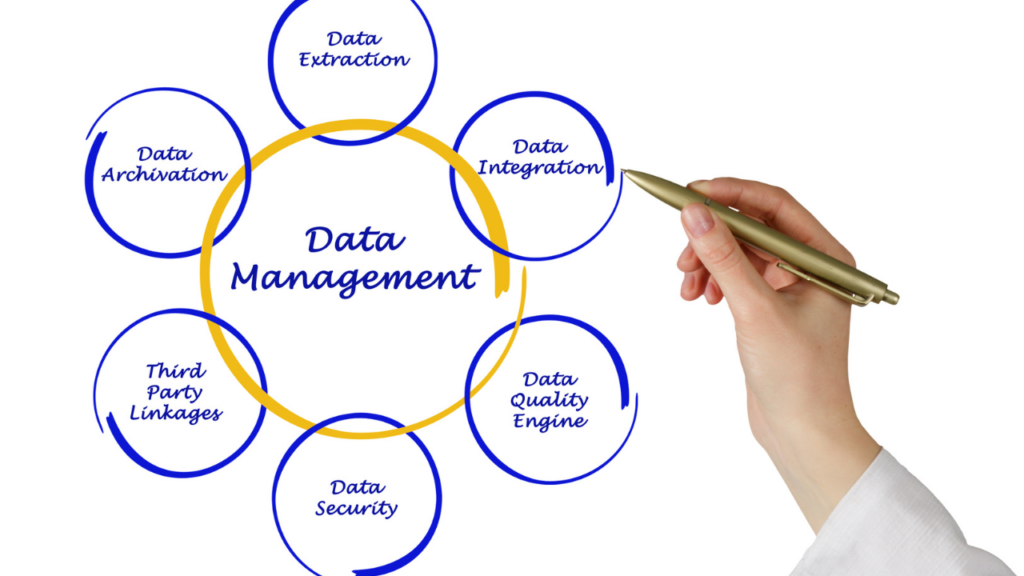
The Role of Chief Data Officers Will Expand
Yes, it’s likely that the role of Chief Data Officers (CDOs) will expand in the future, as data becomes an increasingly important asset for organizations of all kinds.
As companies gather more data, they need someone who can manage and analyze it effectively, and make strategic decisions based on the insights that are generated. This is where CDOs come in – they are responsible for overseeing the organization’s data strategy, ensuring that data is collected, stored, and analyzed in a way that supports business objectives.

In the future, we can expect the role of CDOs to become even more important, as data-driven decision making becomes more prevalent across all industries. CDOs will need to be able to work closely with other C-level executives to ensure that data is integrated into all aspects of the organization’s strategy, and they will need to be skilled in data analysis, data visualization, and data governance.
Additionally, as technology continues to advance, the volume and complexity of data will only continue to grow, so CDOs will need to stay up-to-date with the latest tools and techniques for managing and analyzing data. Overall, the role of the CDO will be critical in helping organizations stay competitive in a data-driven world.
Data Engineers Will Become Vital to Data Management
As data becomes an increasingly valuable asset in today’s digital world, the role of data engineers is becoming more critical in managing and processing data. Data engineers are responsible for designing, building, and maintaining the systems and infrastructure necessary to support the data needs of an organization.
In recent years, the volume, velocity, and variety of data generated by organizations have increased dramatically. As a result, companies are looking for ways to process and analyze this data to gain insights that can help them make better decisions and gain a competitive advantage. This is where data engineers come in.

Data engineers work closely with data scientists and analysts to design and implement the data infrastructure necessary to store, process, and analyze large volumes of data. They are responsible for creating data pipelines that move data from various sources into a centralized repository for analysis.
Data engineers must also ensure the reliability and scalability of the systems they design. This includes monitoring the performance of data systems, troubleshooting any issues that arise, and implementing upgrades and improvements as needed.
In short, data engineers are essential to the successful management of data in today’s digital world. As the volume of data continues to grow, the demand for skilled data engineers will only increase, making this an excellent career path for those interested in working with data.
Regulation and Data Culture Challenges Will Remain Prevalent
Regulation and data culture challenges are likely to remain prevalent in the foreseeable future. Here are a few reasons why:
Rapidly advancing technology: With technology evolving at a fast pace, regulators are struggling to keep up with the changing landscape. For instance, the rise of artificial intelligence and machine learning has created new challenges for regulators, who need to ensure that these systems are transparent and fair. Similarly, the explosion of data has raised concerns about privacy and security, requiring regulators to develop new frameworks for data protection.
Cross-border data flows: With the globalization of business, data is flowing across borders more freely than ever before. This has created a complex web of legal and regulatory issues, with different countries having different data protection and privacy laws. Regulators are struggling to keep up with the complexity of cross-border data flows, and the legal landscape is still evolving.

Changing attitudes towards data: As people become more aware of the value of their personal data, there is a growing demand for greater control and transparency over how that data is collected, used and shared. This has led to the introduction of new regulations, such as the EU’s General Data Protection Regulation (GDPR), which give individuals greater control over their personal data.
However, implementing these regulations has not been easy, and there are still many challenges to overcome.Cultural shifts: Finally, there is a growing cultural shift towards data-driven decision making, which is changing the way organizations operate. This requires a new mindset, where data is seen as a strategic asset that needs to be managed effectively.
However, creating a data-driven culture is not easy, and requires a significant investment in skills, technology and processes.Overall, regulation and data culture challenges are likely to remain prevalent for the foreseeable future. While there is no easy solution to these challenges, organizations can start by investing in the right technology and processes, and by developing a data-driven culture that is aligned with the changing regulatory landscape.
Data-Driven Approaches Will Support Autonomous Finance Operations
Data-driven approaches can certainly support autonomous finance operations in a number of ways. Here are a few ways in which this can happen:

- Predictive Analytics: By analyzing large amounts of historical financial data, predictive analytics can be used to forecast future trends, patterns and potential financial risks. This information can be used to automate financial decisions and help reduce the risk of errors and fraud.
- Machine Learning: Machine learning algorithms can be trained on financial data to identify patterns, make predictions and automate decision-making processes. This can help finance operations become more efficient and accurate, reducing the need for manual intervention.
- Real-time Data Analytics: With the advent of real-time data analytics, finance operations can quickly access and analyze data in real-time. This can help them make faster, more informed decisions, which is critical in a fast-moving market.
- Automation: By automating repetitive tasks and processes, finance operations can become more efficient and cost-effective. This can free up time and resources for more strategic tasks, such as risk management, forecasting and analysis.
Overall, data-driven approaches can provide significant benefits to autonomous finance operations by increasing efficiency, reducing errors and fraud, and providing valuable insights into financial trends and patterns.
Unified Departmental Decision Making Will Drive Data Strategy Overhaul
Unified departmental decision making can certainly be an effective approach for driving a data strategy overhaul within an organization. When different departments within an organization are siloed, they may have their own data strategies and may not be collaborating with each other effectively. This can lead to inefficiencies, duplication of effort, and missed opportunities.
By unifying decision making across departments, an organization can ensure that everyone is working towards the same goals and using data in a coordinated way. This can lead to better insights, more efficient use of resources, and more effective decision making.

Here are some steps an organization can take to implement a unified departmental decision making approach for driving a data strategy overhaul:
- Identify the key stakeholders: Determine who needs to be involved in the decision making process and ensure that everyone is on board with the need for a data strategy overhaul.
- Define the goals and objectives: Clearly articulate the goals and objectives for the data strategy overhaul and ensure that they are aligned with the organization’s overall strategy.
- Establish a governance structure: Define a governance structure that enables cross-departmental decision making and ensures that everyone is working towards the same goals.
- Develop a roadmap: Develop a roadmap for the data strategy overhaul that outlines the key activities, milestones, and timelines.
- Implement the roadmap: Work collaboratively across departments to implement the roadmap, ensuring that everyone is contributing to the success of the data strategy overhaul.
- Monitor progress and adjust as needed: Monitor progress against the roadmap and adjust as needed to ensure that the data strategy overhaul is on track and meeting its goals.
By following these steps, an organization can effectively drive a data strategy overhaul through unified departmental decision making.








